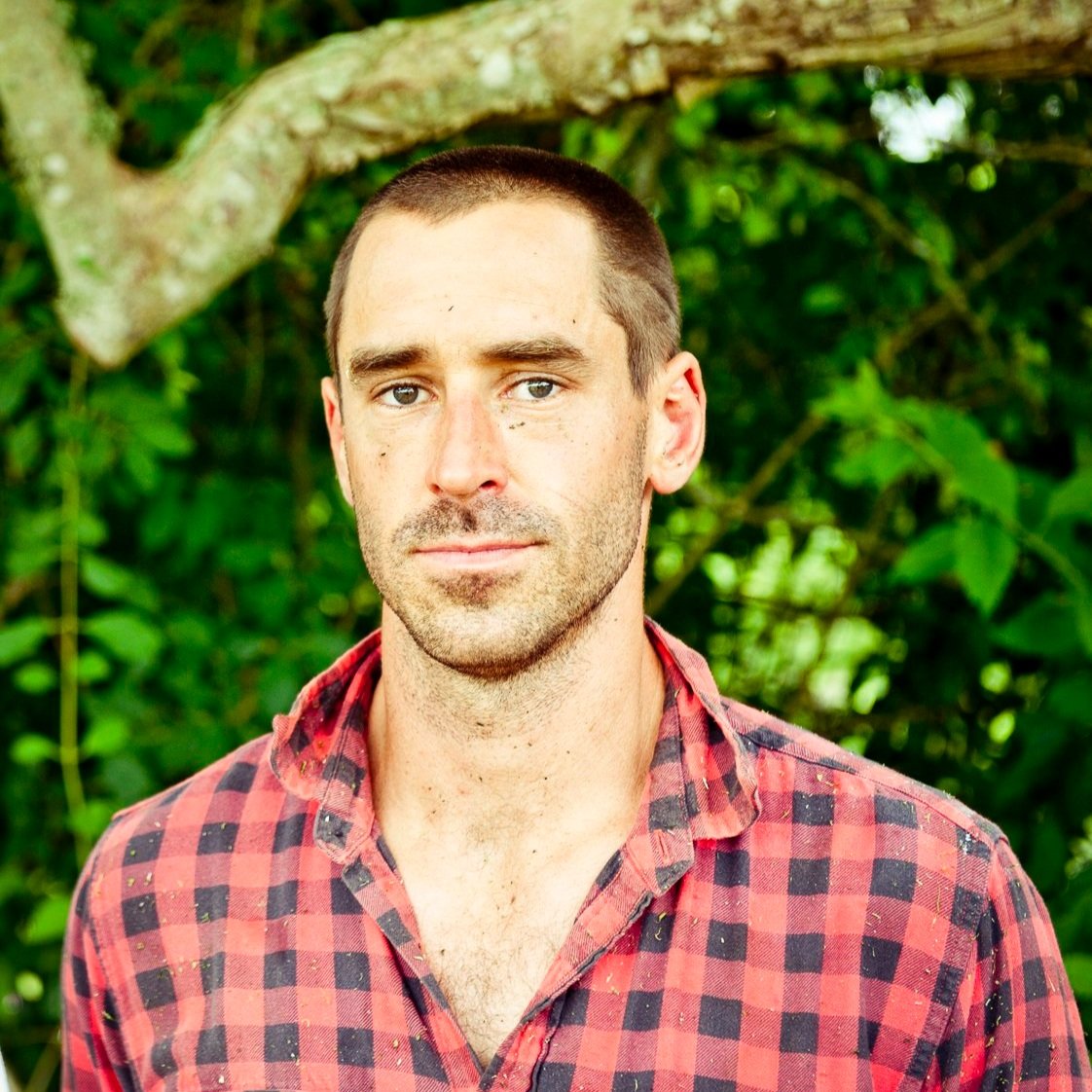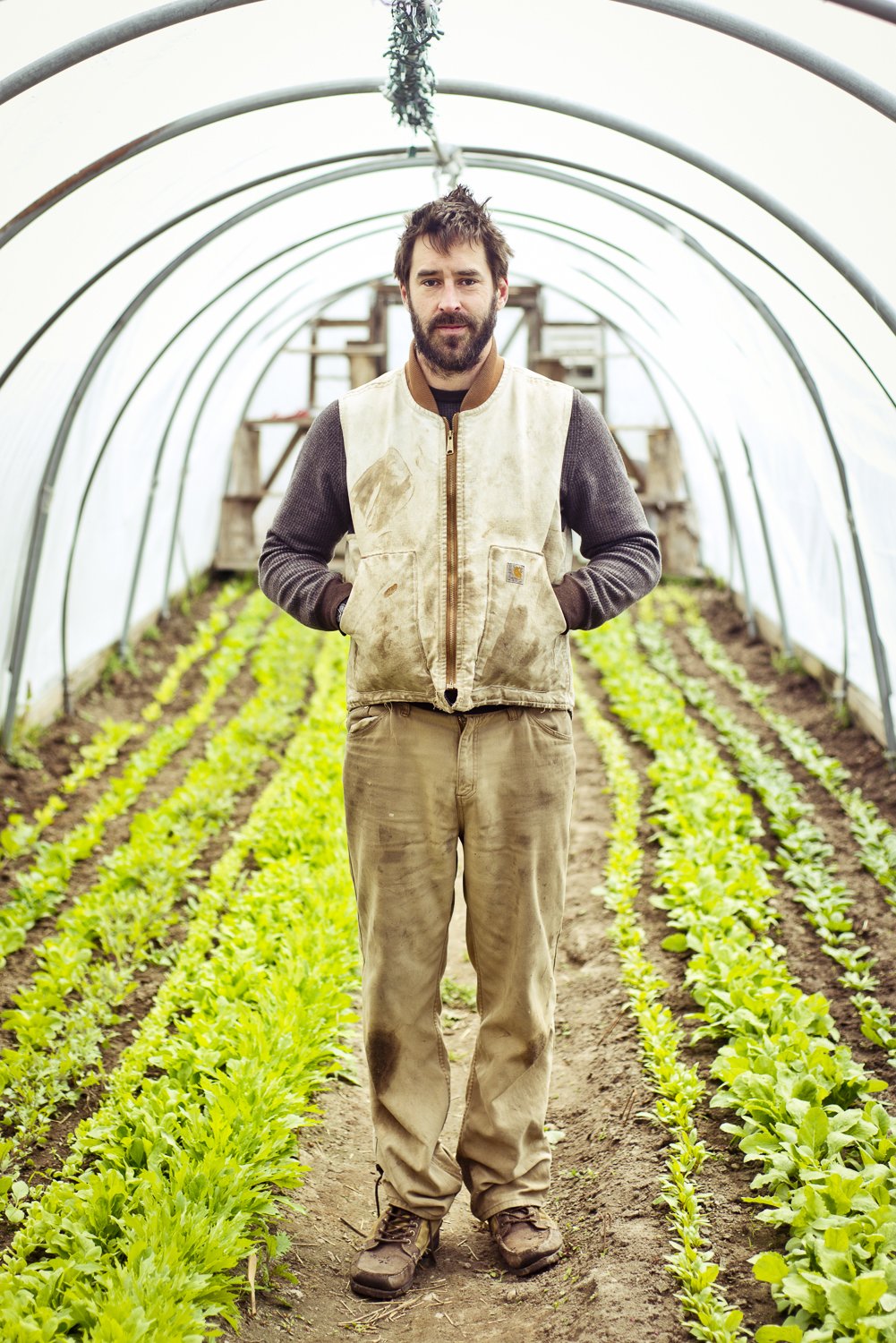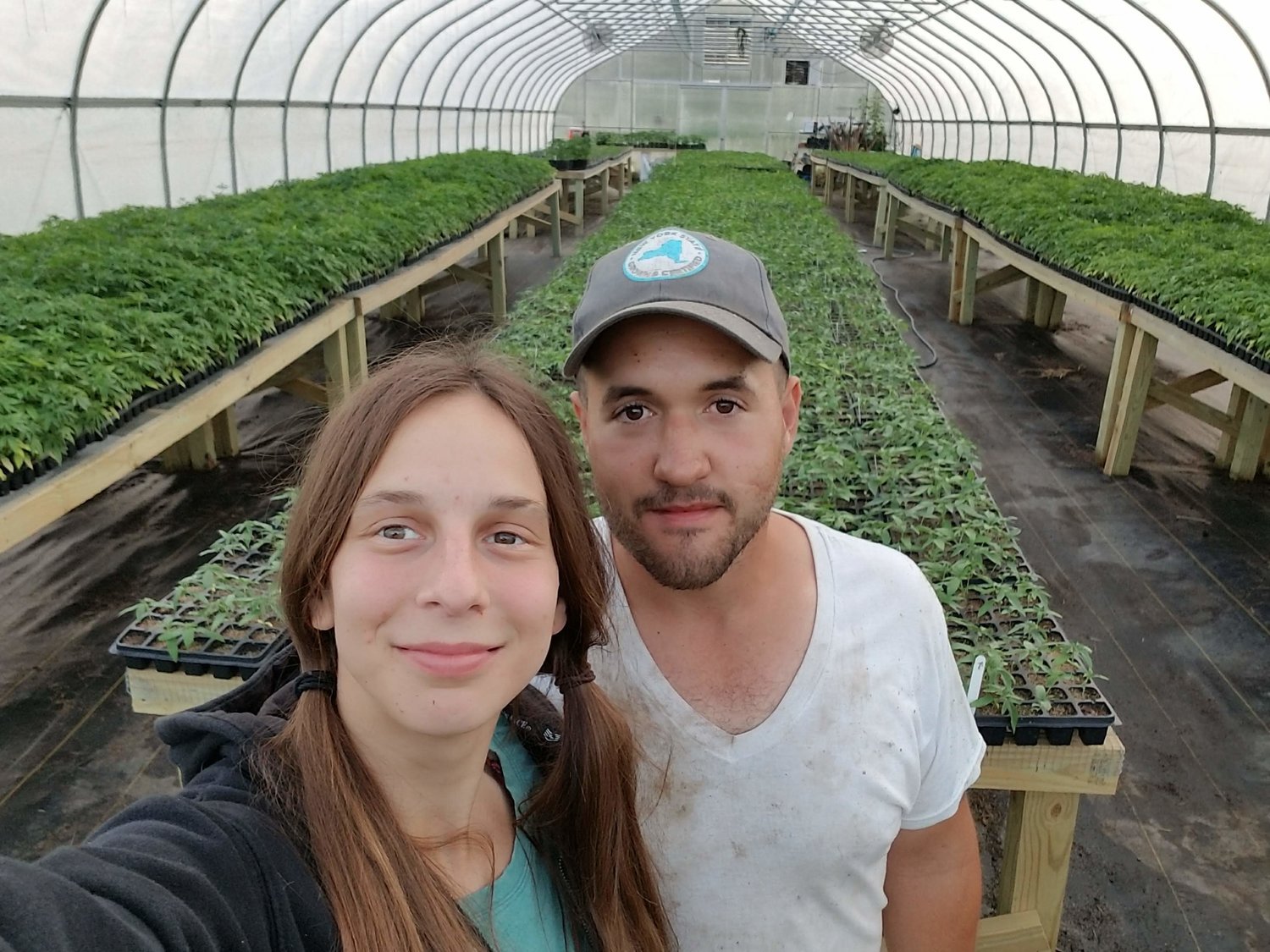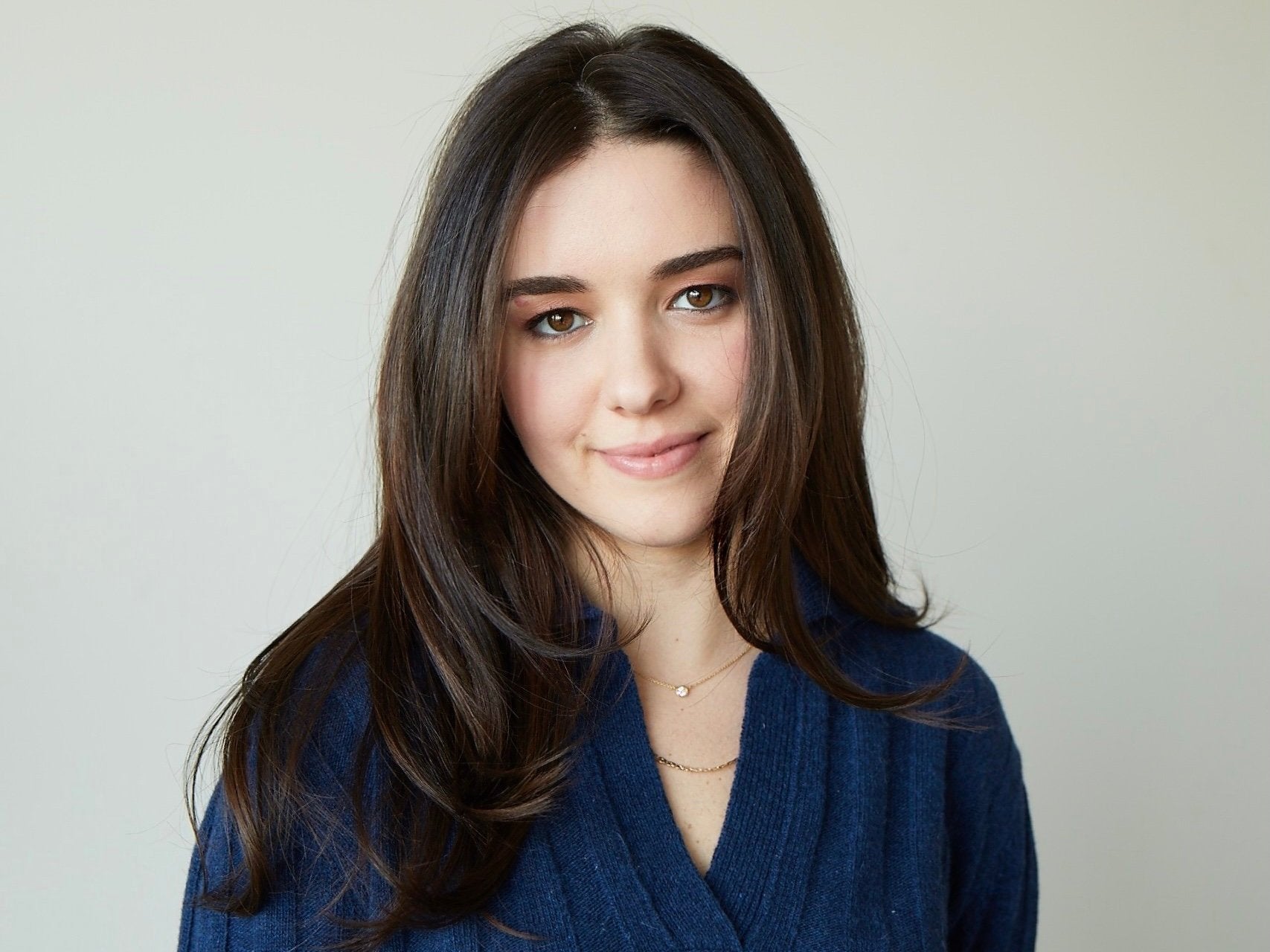Eating Our Vegetables with Chris Fischer
“The ideal is you grow yourself. If you can't grow yourself, go to the farm. If you can't go to the farm, go to the farmer's market. If you can't go to the farmer's market, buy organic. The closer you are to the source of it, the better it is for you and your family.” - Chris Fischer
Growing up on a Massachusetts island called Martha’s Vineyard, Chris Fischer ate very well. Between his grandparents’ five-acre farm and his father’s knack for hunting, fishing, and foraging, his upbringing was abundant with fresh produce, meat, and seafood. It’s no wonder he became a chef.
“I do believe that people spend a lot of time chasing their food memories from their childhood,” he says. “And mine were filled with extremely good and nutritious food. Venison to rabbit, blue fish to oysters—the whole thing. It was amazing.”
After working in the kitchen at Babbo, an acclaimed New York City Italian restaurant, Chris returned to his hometown to start a private cheffing and catering company. In addition to cooking, he also developed culinary gardens and small farming operations for his clients, which eventually led him to take over his family farm.
During this time, Chris also had a successful two-year stint as the executive chef of a local restaurant and wrote a James Beard Award Winning Cookbook about his experience running the farm. And though his family has since sold the farm and he left the island to build a life with his wife Amy Schumer and their son Gene, his passion for healthy, vegetable-forward cooking has only grown stronger.
Here, Chris shares how he’s channeling this interest into his daily life as a dad—and how it inspired an exciting new project.
The following interview has been edited and condensed for clarity.
Mast Journal: What have you been working on lately?
Chris Fischer: I now support my wife's work and cook for the family, but also we made a cooking show together on the Food Network called Amy Schumer Learns to Cook. And I'm writing a cookbook about healthy family cooking.
MJ: Did you always know you wanted to write another book?
CF: I always wanted to write another one. And when your first one wins a James Beard Award, you think that people are going to want you to write another one. But it turns out that you have to come up with a good concept and it has to be the right moment. I've spent five years trying to come up with a concept that people thought was interesting. And so this book, the fact that it comes out so easily and smoothly and can be expressed in one sentence is added up with the fact that I think it's a good idea. It's healthy, whole food cooking for your family, written by a dad. It’s coming out in 2024.
MJ: What are you most excited about, in regards to this project?
CF: I’m excited about the process of writing it because it's making me cook for my family in a really healthy way. I'm excited about trying to teach people. I really love cooking. I really love shopping. I really love vegetables. Being a farmer is really hard. I was always so envious of my friends who are chocolate makers or winemakers or coffee makers because you're selling something that people want. When you're a farmer, you're selling vegetables. The American population is not as excited about vegetables as they should be.
I love vegetables. I love it the way they make me feel. I love cooking with them. I love cooking with them seasonally. I love cooking all over the country and trying new vegetables. And so I'm excited to try to inspire other home cooks to make healthy, exciting meals for their family because then your whole family's happy and productive and can thrive. It sounds cliche, but it's not. And in our family, we are very busy and ambitious, so whenever we fall off the wagon and start eating poorly, everything else just falls to slip.
MJ: What did you love about writing the first book?
CF: I am a big reader and I love books and I was so honored to be able to make it. And we created all of the art for it. We photographed it as it happened, versus photo shoots. We also created all the fonts on a 19th-century German letterpress, so it was a really handmade book, which featured a lot of history about the island and about my family. So I was really proud when I walked into the MoMA and they were selling it in their gift shop. That felt like a really great achievement because they were acknowledging the design element of it. It was organized into six seasons and by meals and we had these menus that we created and it trapped a year on Beetlebung Farm.
MJ: Are you still doing any farming or gardening?
CF: We've just moved into a new house in Brooklyn, but in our old apartment, we had very elaborate, wild, amazing gardens, which I loved. We have a home on Martha's Vineyard and we have great herb gardens and Gene has his own little vegetable garden. I'm still very close with lots of farmers in Martha's Vineyard and I participate in many ways with supporting various farms. I think Gene and I are going to work on one this summer. He'll be four then, so it'll be his first job. And we have to have a house in the Catskills where we have apple trees and asparagus.

MJ: Where do you shop for groceries now?
CF: If I'm cooking vegetables, my preference is to go to the farm—if we're not in the city—or to go to the farmer's market. If you bring your kid to a supermarket, they just throw in marshmallows and sugary cereals. It's all just bait for them. One of the many virtues of going to the farmer's market is you can bring your kid and it's a fun activity. They do have good prepared foods and your kid's like, ‘I want an apple.’ The worst is apple cider. I'll take that. When I lived uptown, I would shop at Mast Market. One of the beautiful things about New York City are the small local shops owned by owner-operators. That's where I go to supplement my vegetables.
The ideal is you grow yourself. If you can't grow yourself, go to the farm. If you can't go to the farm, go to the farmer's market. If you can't go to the farmer's market, buy organic. The closer you are to the source of it, the better it is for you and your family. There's some statistic about the degradation of nutrients that vegetables go through on a daily basis since they've been harvested. It's something like they lose a third of their nutrition every day that they're out of the ground.
I learned how to farm from my grandfather, and he'd been farming his entire life. He grew up in the Depression. He went to agriculture school. At 95 years old, he would take me dumpster diving at the telephone company to find cables so we could reuse them in the trellises to grow blackberries. He was the cheapest person in the world. When I took over farming, I didn't have any money either, so I was thrifty. The biggest bummer to me about eating vegetables is that it's considered somehow elitist or for rich people or more expensive. It's just not true.
MJ: Did you enjoy creating a TV show?
CF: It was the pandemic and we were all at home and everyone in a lot of industries felt like they might not ever work again. So this show gave us something really fun to do that we all benefited from. Amy's never cooked anything since, but she did learn how to cook during the show. Amy would come up with the dishes and then I would figure out my favorite version and teach her how to make it. So it's fun. And from a humor standpoint, to have the straight character and then the goofy one, just comedically for us to play off of each other, was great.
MJ: Will you make more TV or film in the future?
CF: I'm the subject of and a producer on and a writing contributor on a lot of Amy's work, specifically Life and Beth, the show that she's making right now. She's filming that as we speak. That was another piece of media that I was really proud of because it made farming look really cool and sexy and beautiful and fun. And a lot of the situations that happened on the farm in the show were things that happened to us.
I do make some food-related shorts, too, and I'm working on something now that I'm excited about. I'm making a short that is my artful, respectful, simple reaction to some of the bigger food media out there. It’s about a Japanese fishing village and it’s playing at the Martha’s Vineyard Film Festival in a couple weeks. And I'm really proud of it. We're going to show an in-process cut of it to get some feedback. It's really simple. It's really beautiful.
MJ: What was your inspiration for the short film?
Many of my friends are documentary filmmakers and one of my closest is this guy Matt Heineman. He and I have always supported each other and he just has this specific style. He doesn't do narration and he's very non-judgmental about things that he could easily be judgmental about. But he just presents them as they are. The inverse side of that is how Anthony Bourdain and other people took food television and turned it into this really contrived, gluttonous, gross thing. As a food producer, I've always felt like it's important to tell the story of where your food comes from in a way that is compelling because people then care about the food more.
With this short, the idea is to put the viewer into this dream state in this place that's unnamed. This island is actually a part of Tokyo, but it's 300 miles away, in the middle of the ocean and it's this place tourists don't go to. So it's just this really simple economy. Partly because I grew up on Martha's Vineyard, I wanted to show what happens when tourism doesn't ruin a place. And I also wanted to make something about food that didn't have narration and wasn't telling the audience how to feel or how things taste and didn't involve anybody eating any food.

Recipe: Pea Shoot Vinaigrette
Recipe by Chris Fischer. Serving size: approximately enough for two large salads.
Ingredients:
The peel of 1 apple
2 Cups Pea Shoots
½ tsp Garlic (¼ Clove)
¼ Cup Green Onion
¾ Cup Pine Nuts
¼ Cup Avocado Oil
½ Cup Water
2 TBSP Champagne Vinegar
1 tsp salt
Place all ingredients in a blender and puree until very smooth. Adding more water as needed.
More from The Journal

Deep Roots with Scott O’Rourke
In conversation with Scott O’Rourke of Deep Roots Farm in Copake, NY.
Read more
In conversation with Lily Geiger, founder of the non-alcoholic beverage company, Figlia.
Read more